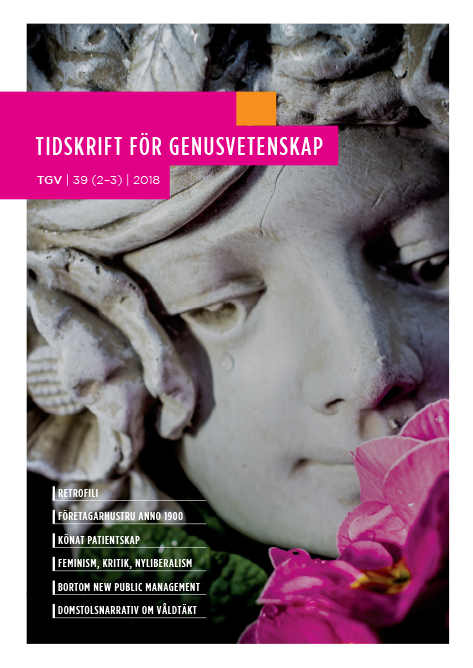Det könade patientskapet
Om det biopsykosociala perspektivets frånvaro när smärtpatienter möter allmänläkare
DOI:
https://doi.org/10.55870/tgv.v39i2-3.2800Nyckelord:
långvarig smärta, kronisk smärta, biopsykosocialt perspektiv, patientskap, primärvård, allmänläkare, bemötandeAbstract
Approximately 20% of the population experience long-term pain. Women are generally more affected than men. Currently, pain researchers advocate a biopsychosocial perspective, which emphasises the importance of addressing psychological and social factors as well as biomedical ones in clinical practice. However, previous research shows that this holistic perspective is not always materialized in medical practice. The main objective of this article is to explore what obstructs the biopsychosocial approach from being explicitly used in primary care services. Our empirical material consists of qualitative interviews conducted with 33 pain patients and 15 general practitioners. The results suggest that participants agree that a biopsychosocial perspective is important to promote good care. However, the underpinning conditions for the clinical consultation, implicating a lack of time, continuity and knowledge as well as requirements related to societal regulations, limited the possibilities to adopt a biopsychosocial perspective in practice. Instead, many consultations focused on medications and work ability, which, in turn, led to gendered consequences. Women and men agreed that work was an important part of their identity. However, men described different opportunities than women to invest all their energy in work. A main focus on work ability in consultations therefore confirmed the values highlighted by men, but at the same time obscured many areas that were the everyday reality of many of the women. Finally, all patients described an ambivalent stance towards being a patient. Many distanced themselves from the shameful and negative gendered patient stereotypes, but also needed to make their patienthood convincing to general practitioners in order to receive care. We conclude that important life areas affecting pain can be uncovered, and a less shameful patienthood enabled, when a biopsychosocial perspective is materialized with dignity in clinical practice.
Nedladdningar
Downloads
Publicerad
Referera så här
Nummer
Sektion
Licens
Författaren/författarna behåller copyright till verket.





